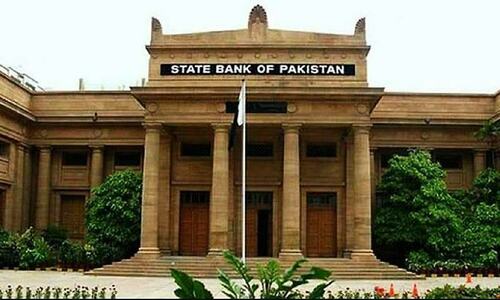ISLAMABAD: The government contracted $15.32 billion worth of new foreign loans from multilateral institutions and commercial banks during the previous fiscal year (2020-21) — almost 47 per cent higher than $10.45bn a year earlier.
With these additional loan agreements, the incumbent government contracted a total of about $34.17bn in its first three years in power, according to the ‘Annual Report on Foreign Economic Assistance 2020-21’ released by the Ministry of Economic Affairs. Total foreign loan disbursements stood relatively higher at $35.1bn during the three years.
The data showed that Pakistan contracted $8.41bn in the fiscal year 2018-19, followed by $10.45bn in 2019-20 (up 24pc), and $15.32bn in 2020-21 (up 47pc).
With this, Pakistan’s external public debt stood at $85.6bn as of June 30, 2021, showing a net increase of about $7.7bn (10pc) compared to $77.9bn as of June 30, 2020. By the end of June 2019, the external public debt amounted to $73.4bn.
The report explained that a higher commitment during the last fiscal year was made “to mitigate the pressure on the current account deficit, strengthen foreign exchange reserves, enhance external debt servicing capacity and provide requisite financing to water sector development”.
With $4.675bn, WB emerged as the largest multilateral development partner
The report noted that out of $15.32bn new agreements during the previous fiscal year, $6.97bn worth of financing agreements were signed with multilateral development partners, $4.66bn with foreign commercial banks, and $187 million with bilateral development partners.
In addition, the government also borrowed $2.5bn from international capital markets through Eurobonds and $1bn from the State Administration of Foreign Exchange (SAFE), the Chinese government’s foreign exchange and international trade agency, as a deposit.
Of these, an amount of $2bn (or 13pc of the total commitments) was earmarked by multilateral development partners as programme financing to broaden and deepen the financial system, improve fiscal management and regulatory framework to foster growth and competitiveness in Pakistan.
Among the multilateral development partners, the World Bank emerged as the largest development partner in terms of new commitments ($4.675bn), followed by $952m from the Islamic Development Bank, $902m from the Asian Development Bank (ADB), and $326 from the Asian Infrastructure Investment Bank.
Besides, $4.66bn (30pc of the total) was arranged from foreign commercial banks. An amount of $4.19bn (27pc of the total) was contracted for project financing and $952m (or 6pc of the total) for commodity financing.
Energy and power were the key priority sectors for new loan agreements during the 2020-21 fiscal year, with a total share of 35pc out of the total committed project financing of $4.19bn.
Rural development and social welfare emerged as second priority with a share of 23pc of the total project financing, followed by governance 18pc, finance and revenue 7pc, education 5pc, agriculture 5pc, and transport and communication 4pc.
Published in Dawn, December 14th, 2021













































